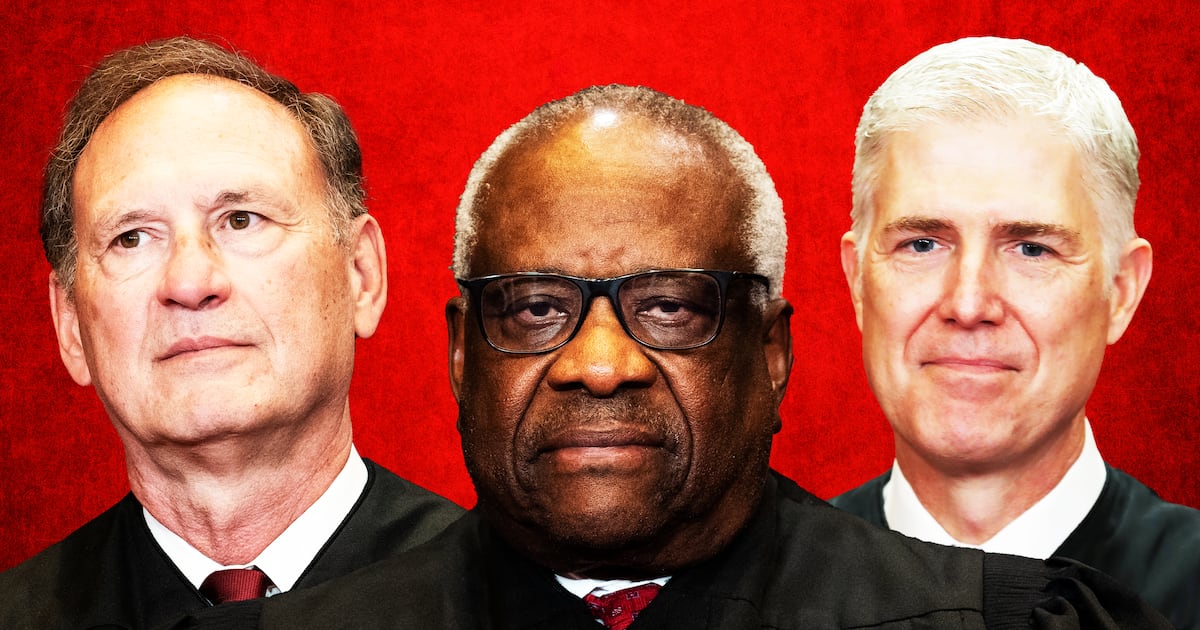In America, you have the right to remain silent, the right to rise—and soon the right to work. At least that is if you live in Wisconsin, or one of the other right-to-work states that allow private sector workers to opt out of union membership.
Next week, it is expected that Gov. Scott Walker will sign legislation making Wisconsin the 25th state to pass right-to-work legislation. Interestingly, Walker didn't actively push for this legislation, but his signature will nonetheless guarantee one more feather in the cap of a Republican governor who has helped transform his state in recent years.
You have to marvel at just how lucky Walker is. While some governors have a hard time documenting any accomplishments, Walker seems to have his purple state working on autopilot.
ADVERTISEMENT
So is this a big deal? Does Walker deserve credit?? And is this the kind of thing that would buttress the resume of a presidential candidate???
I posed these questions to the always quotable Grover Norquist, head of Americans for Tax Reform. Reached for comment abroad, Norquist emailed me this approving response. (I like to think of it as a kind of Haiku):
Walker led with Act 10 reforming government unions in Wisconsin.He wisely didn't do Right to Work at the same time.He has now won three elections. The state has watched Act 10 work.
... Next week he signs Right to Work...in Wisconsin for heaven sake.He did public sector labor reform.Tax cut.Expanded school choiceConcealed Carry legalized.Reduced regulation on mining....big deal up north.Now right to work in private sector.And...public university reform in this year's budget.
Message: Not a one trick pony. Still reforming in the middle of a campaign.Walker can create a news event. Not a speech. Real progress.The only thing Jeb Bush can sign is a check...
Why can't all sources be like this?
Norquist makes a compelling case for Walker, but this also serves as a reminder of one of the stark contrasts that exists in our nation. And it's not just the right vs. left divide; it's also the national vs. state divide. While some Republicans are (perhaps not unreasonably) worried they might not ever win another national election, they now control more state legislatures than ever (including both houses in the Wisconsin legislature).
And while social conservatives may lament losing the culture war, on the fiscal front, the collapse of organized labor has been nothing short of remarkable. To many conservatives, unions are a symbol of violence, strikes, socialist influence, voter intimidation, and general thuggery. They provided the money and ground troops for Democrats. And even though some conservatives might have hated them, there was a time in the 20th century when to attack unionization was to attack mom, apple pie, the flag, and blue collar America in general.
But times have changed. Dramatically. In 1953, almost a third of American employees were union members. Today, in Wisconsin, only about eight percent of private sector employees are unionized (and one expects that number will begin declining).
As such, Walker didn't so much deliver a coup de grace as he committed a mercy killing. And in this regard, he stands on the shoulder of giants. There are various cultural and economic reasons for the decline of unions in America, but one can't help thinking the political strategy and messaging employed by conservatives has at least been a major contributor.
Language is important, and you know your framing has worked when your opponents use it, too. “Right to work is desperately wrong for Wisconsin,” Wisconsin's Democratic leader in the Assembly recently complained.
His battle was lost before he finished saying it. Who could be against the right to work?





